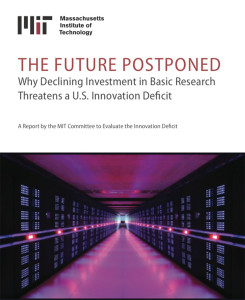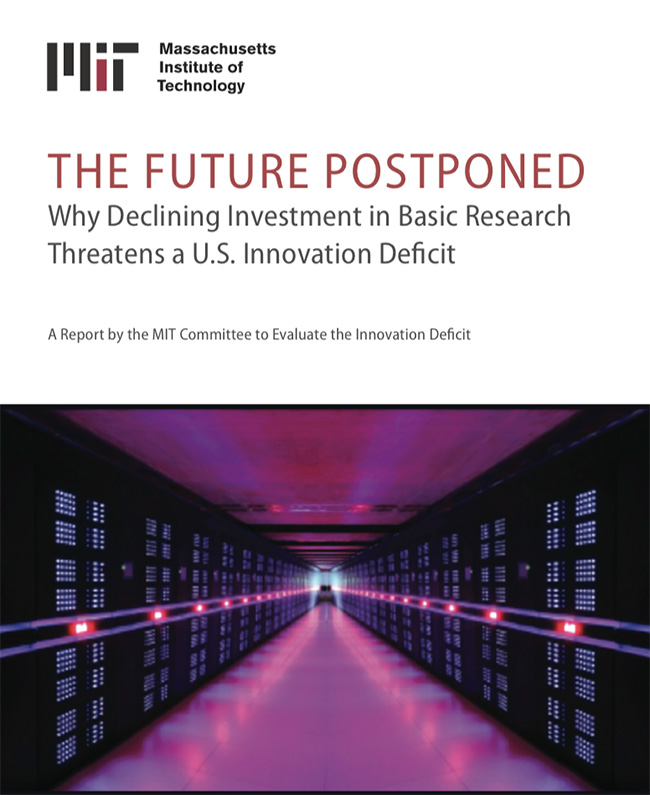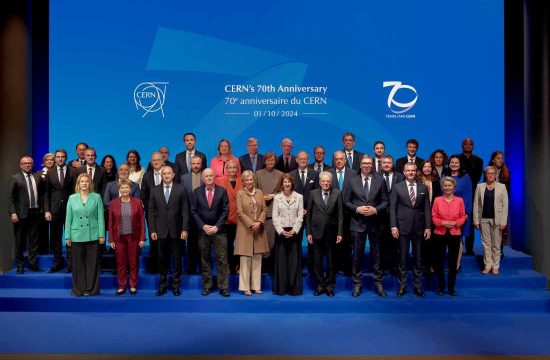Report details impacts of declining research investment and benefits of renewed support in critical fields like cybersecurity, infectious disease, plant biology, and Alzheimer’s.
 CAMBRIDGE— On Monday, April 27th, MIT will release the findings of a new report examining the impacts of declining U.S. federal government investment in basic research. Reporters are invited to attend the report release event in Washington, D.C., which will feature talks by Dr. Rush Holt, CEO of the American Association for the Advancement of Science (AAAS), Katrine Bosley, CEO of Editas Medicine, MIT Professor Marc Kastner, president of the Science Philanthropy Alliance, and select MIT faculty.
CAMBRIDGE— On Monday, April 27th, MIT will release the findings of a new report examining the impacts of declining U.S. federal government investment in basic research. Reporters are invited to attend the report release event in Washington, D.C., which will feature talks by Dr. Rush Holt, CEO of the American Association for the Advancement of Science (AAAS), Katrine Bosley, CEO of Editas Medicine, MIT Professor Marc Kastner, president of the Science Philanthropy Alliance, and select MIT faculty.
The report, “The Future Postponed: Why Declining Investment in Basic Research Threatens a U.S. Innovation Deficit,” was prepared by the MIT Committee to Evaluate the Innovation Deficit to examine how research cutbacks will affect the future of scientific research in the U.S. It highlights opportunities in basic research that could help shape and maintain U.S. economic power, and benefit society. While U.S. competitors are increasing their investment in basic research — leading to notable achievements, such as the European Space Agency successfully landing the first spacecraft on a comet, China developing the world’s fastest supercomputer, and research in plant biology uncovering new ways to meet global food demand — the percentage of the U.S. federal budget devoted to research and development has fallen from just under 10 percent in 1968 to less than 4 percent in 2015.
In “The Future Postponed,” MIT faculty members provide examples of critical fields in which investment is required, highlighting potential opportunities and areas where U.S. government support is needed. For example, the authors explain that the FDA has approved 19 new cancer drugs in the past two years, thanks to more than four decades of basic research on the biology of cancer. While more than five million Americans suffer from Alzheimer’s disease, more than most forms of cancer, no new drugs for Alzheimer’s have been approved in the past decade. The report cites the need to expand research in neurobiology, brain chemistry, and the science of aging to develop new treatments for Alzheimer’s.
The authors also highlight the importance of expanding university-based research into new types of antibiotics to tackle the growing health threat posed by the rise of antibiotic-resistant bacteria, an area where commercial incentives to invest are lacking. Synthetic biology research could lead to such developments as customized treatments for genetic diseases, engineered viruses that can identify and kill cancer cells, and climate-friendly fuels; however, a lack of investment in laboratory facilities is leading to a migration of top talent and research leadership overseas. While innovations in plant science will be necessary to meet global food requirements and address malnutrition, U.S. investment in basic plant-related research and development is far below that of many other scientific disciplines, despite the fact that the agricultural sector is responsible for more than two million U.S. jobs and is a major source of export earnings.
Additionally, the report’s authors emphasize how the U.S. has an opportunity to take a leadership role in a number of areas including fusion energy research, robotics, and quantum information technologies.
This event is co-sponsored by AAAS, the Association of American Universities, the Association of Public and Land-grant Universities, The Information Technology and Innovation Foundation, The Science Coalition, and MIT.








